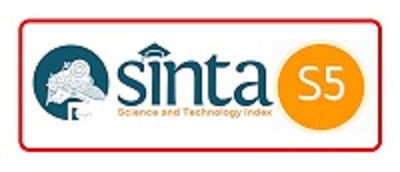Pengaruh Penerapan Sistem E-Filling Terhadap Kepatuhan Pelaporan SPT Tahunan Tenaga Kependidikan Orang Pribadi di Universitas Islam Indonesia
DOI:
https://doi.org/10.29240/disclosure.v2i1.4629Keywords:
E-filling system, SPT reporting, UIIAbstract
Downloads
References
Agustiningsih, W. (2016). Pengaruh Penerapan E-filing , Tingkat Pemahaman Perpajakan Dan Kesadaran Wajib Pajak Terhadap Kepatuhan Wajib Pajak Di KPP Pratama Yogyakarta. Journal Universitas Negeri Yogyakarta.
Anggraini, F., & Waluyo. (2014). Faktor-Faktor Yang Mempengaruhi Kepatuhan Pajak Wajib Pajak Orang Pribadi (Wajib Pajak Orang Pribadi Yang Terdaftar Di KPP Kebayoran Baru Tiga). E-Journal Magister Akuntansi Trisakti, 1(1).
Astuti, I. N. (2015). Analisis Penerapan E-Filing Sebagai Upaya Meningkatkan Kepatuhan Wajib Pajak Dalam Penyampaian Surat Pemberitahuan (Spt) Tahunan Pada Kantor Pelayanan Pajak Pratama Gresik Utara. Universitas Negeri Surabaya.
Diana, D. (2020). Analisis Belum Efektifnya Penerapan Sistem E-Filling Dalam Menyampaikan Surat Pemberitahuan (Spt) Dan Penerimaan Pajak Penghasilan Wajib Pajak Orang Pribadi Di Kpp Pratama Ilir Timur Palembang. Universitas Muhammadiyah Palembang.
Edison. (2014). Influencing Tax Compliance in SMEs through the Use of ICTs. Tanzania. International Journal of Learning, Teaching and Educational Research.
Eugenia, et al. (2015). Pengaruh Persepsi Wajib Pajak Orang Pribadi Pada Penerapan e- filing Terhadap Kepatuhan Dalam Menyampaikan SPT Tahunan di Kota Surabaya. Jurnal Gema Aktualita.
Fitria, V. D. (2010). Pengaruh Pengetahuan Perpajakan, Kualitas Pelayanan, Pemeriksaan dan Kesadaran Terhadap Kepatuhan Wajib Pajak Dalam Menyampaikan Surat Pemberitahua (SPT). Jurnal Akuntansi & Auditing.
Harrison, & Nahashon. (2015). Effect Of Online Tax System On Tax Compliance Among Small Taxprayer In Meru County, Kenya. United Kingdom. International Journal of Economics, Commerce and Management.
Herina, V. N. . (2017). Pengaruh Persepsi Kegunaan Dan Persepsi Kemudahan Penggunaan Terhadap Hubungan Antara Persepsi Penerapan Sistem E-filing Dengan Tingkat Kepatuhan Wajib Pajak Badan Yang Dimediasi Oleh Perilaku Wajib Pajak. Journal of Chemical Information and Modeling, 53(9), 1689–1699. https://publikasi.mercubuana.ac.id/index.php/profita/article/view/2901
Mardiasmo. (2011). Perpajakan. Edisi Revisi 2011. Penerbit Andi.
Mardiasmo. (2018). Perpajakan Edisi Terbaru 2018. Penerbit Andi.
Pu’o, S., Sondakh, J. J., & Budiarso, N. S. (2018). Analisis Faktor-Faktor Yang Mempengaruhi Minat Wajib Pajak Orang Pribadi Dalam Menggunakan E-Filing Sebagai Sarana Pelaporan Spt Pada Kpp Pratama Poso. Going Concern : Jurnal Riset Akuntansi, 13(04), 311–324. https://doi.org/10.32400/gc.13.03.20185.2018
Rahayu, S. K. (2010). Perpajakan Indonesia: Konsep & Aspek Formal. Graha Ilmu.
Saksama. (2018). www.pajak.go.id.
Sugiyono. (2014). Metode Penelitian Bisnis. Alfabeta.
Waluyo. (2011). Perpajakan Indonesia. (10th ed.).
Zamzami, A. ., & Putra, Y. . (2019). Intensity of Taxpayers Using E-filing . Journal of Multidisciplinary Research. Journal of Multidisciplinary Research, 5(57), 154–161. https://eprajournals.com/jpanel/upload/724pm_23.Annisa Hakim Z-3486-1.pdf
Downloads
Published
How to Cite
Issue
Section
Citation Check
License
Copyright (c) 2022 Inas Khairunnisa, Muhamad Mukhsin, Andy Matalatta

This work is licensed under a Creative Commons Attribution-ShareAlike 4.0 International License.
Authors who publish with this journal agree to the following terms:
- Authors retain copyright and grant the journal right of first publication with the work simultaneously licensed under a Creative Commons Attribution License (CC BY-NC-SA 4.0) that allows others to share the work with an acknowledgment of the work's authorship and initial publication in this journal.
- Authors are able to enter into separate, additional contractual arrangements for the non-exclusive distribution of the journal's published version of the work (e.g., post it to an institutional repository or publish it in a book), with an acknowledgment of its initial publication in this journal.
- Authors are permitted and encouraged to post their work online (e.g., in institutional repositories or on their website) prior to and during the submission process, as it can lead to productive exchanges, as well as earlier and greater citation of published work (See The Effect of Open Access).














